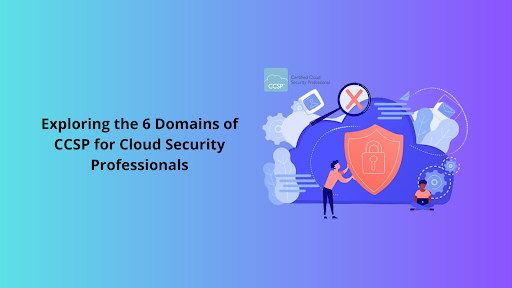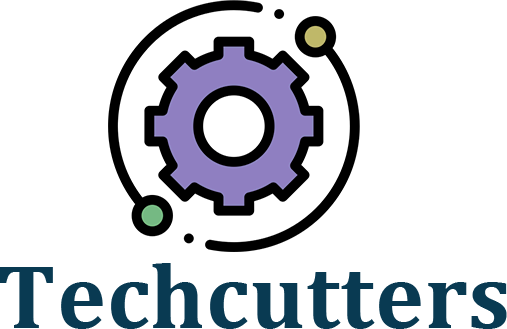Exploring the 6 Domains of CCSP for Cloud Security Professionals

Professionals in cloud security are essential to protecting sensitive data and guaranteeing the reliability of cloud-based systems. The Certified Cloud Security Professional (CCSP) certification attests to a person’s knowledge in this field, which validates their capacity to plan, administer, and manage secure cloud infrastructures. A thorough understanding of the six CCSP Domains, which act as the cornerstones of cloud security theory and practice, is at the core of the CCSP Certification.
Understanding CCSP Certification and Its Significance
The (ISC)2 and Cloud Security Alliance (CSA) developed the CCSP Certification, a credential certifying a person’s proficiency with cloud security principles, practises, and technologies. The need for individuals who can deftly negotiate the complexity of cloud security is growing as organisations shift to the cloud.
The CCSP gives job seekers a competitive edge and inspires trust in stakeholders and employers. It represents a professional’s passion for upholding the privacy, integrity, and accessibility of cloud-based assets and their commitment to remaining abreast of recent advancements in cloud security.
Unveiling the Six CCSP Domains
Each of the CCSP’s six separate domains addresses a crucial aspect of cloud security. The extensive skill set needed for a cloud security professional is encapsulated in these domains:
- Cloud Concepts, Architecture, and Design: This topic explores the underlying principles of cloud computing, including cloud service models, deployment models, and related hazards. Professionals with expertise in cloud security know the complex interactions between cloud components and can create secure cloud architectures that suit organisational requirements.
- Data is the lifeblood of every organisation: thus, protecting it on the cloud is of utmost importance. The complexity of data lifecycle management in cloud systems is explored in this domain, along with data classification, encryption, and tokenization. Experts in this field are prepared to implement strong data security solutions that cross conventional boundaries.
- Cloud Platform and Infrastructure Security: Understanding the cloud infrastructure is essential for safeguarding the foundation of cloud-based systems. The subjects covered in this domain include identity and access management in cloud systems, virtualization, containers, network security, and more. Professionals skilled in cloud security can create a robust security posture that covers the full cloud infrastructure.
- Cloud Application Security: Applications are at the forefront of user interaction, making them susceptible to various threats. In this area, the security of cloud-based applications is explored at every stage of the software development process. It addresses some subjects it addresses: secure coding techniques, vulnerability analyses, and incorporating security into DevOps procedures.
- Cloud Security Operations: Operational excellence is vital in maintaining the security of cloud environments. Topics, including incident response, logging, monitoring, and disaster recovery in cloud settings, are covered in this domain. Experts in this field can plan efficient security procedures that save downtime and improve incident response.
- Legal, Risk, and Compliance: In the cloud era, navigating the legal and regulatory landscape is essential. Global privacy laws, business standards, risk management, and audit procedures are all covered under this topic. Cloud security experts ensure that cloud deployments comply with legal and regulatory standards while reducing risks.
Read More: How Does Technology Impact Student Learning?
The CCSP Advantage: Strengthening Cloud Security Practices
The CCSP domains’ comprehensiveness emphasises how multifaceted cloud security is. A comprehensive understanding of cloud security concepts is possessed by professionals who hold the CCSP Certification, enabling them to manage difficulties with accuracy and foresight.
Organisations place a high value on people who can spot vulnerabilities, place reliable security measures, and guarantee industry compliance. In an increasingly interconnected and cloud-driven world, CCSP-certified experts fill the gap between cloud technology and security requirements.
Advantages of CCSP Certification: Elevating Cloud Security Proficiency
Achieving CCSP certification is a strategic decision that provides many benefits for individuals looking to flourish in cloud security. It goes well beyond obtaining a credential.
- Enhanced Career Prospects: CCSP-certified professionals are in high demand across various industries. Organisations respect employees who thoroughly understand cloud security principles and procedures. Earning this certification greatly improves your career prospects, making you a desirable candidate for jobs like Cloud Security Architect, Security Consultant, or Cloud Compliance Manager.
- Global Recognition and Credibility: CCSP is globally recognized as a standard of excellence in cloud security. The certification has unmatched credibility because of the partnership between (ISC)2 and Cloud Security Alliance. You become a member of a select group of professionals when you earn the CCSP certification, demonstrating your commitment to upholding the highest standards of cloud security globally.
- Access to Expertise and Networking: The CCSP certification gives you access to a sizable professional network of individuals who share your dedication to the highest cloud security standards. Share your knowledge, get input from seasoned professionals, and work together to develop industry best practices. You can network with other CCSPs at conferences, webinars, and forums, enabling you to stay updated with changing trends.
The Future of Cloud Security: CCSP as a Catalyst
Due to the dynamic nature of technology, the future of cloud security is constantly changing. This trend is accelerated by the CCSP certification, which has a variety of effects on how the field develops:
- Driving Innovation: The ability of experts to innovate in cloud security relies on their knowledge of both the complexities of security and the specifics of cloud technology. People with the CCSP certification promote innovation by creating and implementing cutting-edge security solutions that keep up with the altering nature of cloud systems.
- Industry Best Practises and Standards: Professionals with the CCSP certification are essential in establishing industry norms and best practises for cloud security. As cloud systems evolve, their knowledge ensures that security measures are developed to handle new threats and issues, providing a secure and robust digital ecosystem.
- Creating a Secure Digital Environment: As cloud adoption keeps growing, there is a growing need for qualified cloud security experts. By thwarting cyberthreats, safeguarding data, and enforcing compliance, CCSP-certified individuals are at the forefront of establishing a secure digital environment. Their expertise is crucial for upholding the trusting relationship between clients and cloud service providers.
Conclusion
A commitment to excellence in cloud security is embodied through the Certified Cloud Security Professional (CCSP) credential. Its six domains encompass the breadth and depth of knowledge required to successfully secure cloud settings.
The CCSP domains prepare professionals in cloud architecture, data security, legal compliance, and risk management to protect organisations against growing risks and issues. For those looking to strengthen their cloud security skills and contribute significantly to the creation of secure digital environments, the CCSP certification serves as a shining example of expertise and dedication.
Also Read: Most Popular Free Apps on Google Play





